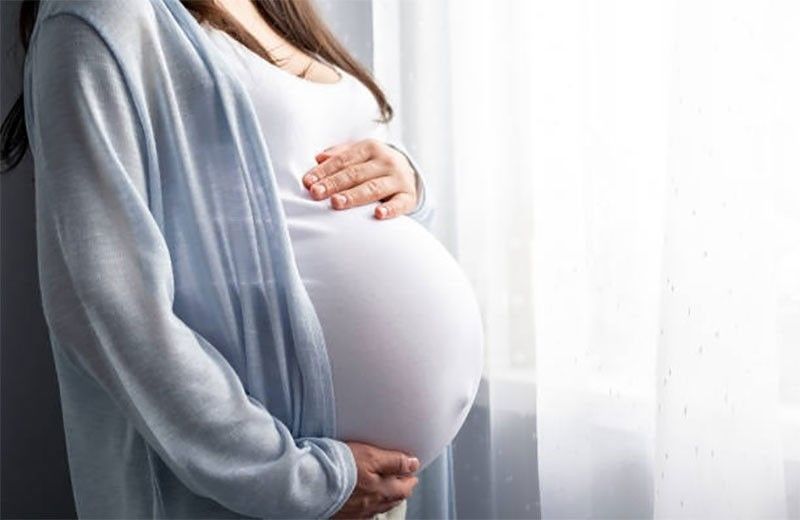House urged to recall OK of ‘pregnancy’ bill

MANILA, Philippines — More than a year after its passage in the House of Representatives, a bill which aims to prevent adolescent pregnancies as well as institutionalize protection for adolescent parents is being questioned by Cagayan de Oro City Rep. Rufus Rodriguez, who wants it recalled and subjected to further scrutiny for being “deceptive.”
Rodriguez said he filed a House resolution on Friday seeking the withdrawal of the chamber’s approval of House Bill No. 8910 and its return to an appropriate committee where it would be checked for compliance with the Constitution and family laws.
The House of Representatives approved HB 8910 in September last year. A Senate version, Senate Bill 1979, is pending.
“Many provisions of the bill aim to institutionalize Comprehensive Adolescent Sexuality Education (CASE), which is a different and separate subject matter from adolescent pregnancy. This is violative of Article IV, Section 26, Paragraph (1) of the Constitution,” Rodriguez said.
Rodriguez said Article IV, Section 26, Paragraph (1) of the Constitution states: “Every bill passed by Congress shall embrace only one subject matter which shall be expressed in the title thereof.”
He said HB 8910 “is very deceptive considering that (while) a reading of the title of the bill will show that it deals with the prevention of adolescent pregnancies and protection of adolescent parents, the bill in fact is mainly on institutionalizing CASE.”
The Cagayan de Oro representative noted the apprehensions and warnings expressed by the Philippine Council of Evangelical Churches and Public Policy Review Commission chairperson and former chief justice Maria Lourdes Sereno that CASE, which is being promoted by three United Nations agencies, “is an international program…that will hyper-sexualize children at a very early age.”
“It has been alleged that CASE will result in undermining parental authority, early sexualization, promoting risky behaviors, contradicting constitutional values, failing to establish abstinence, introducing age-inappropriate content and promotion of homosexuality/bisexuality,” Rodriguez said.
He also maintained that HB 8910 violates constitutional provisions (Sec 2(1), Art XV) on the right of spouses to build a family in accordance with their religious convictions and the demands of responsible parenthood.
No parents’ consent?
Rodriguez argued the bill has provisions that allow minors to access reproductive health information and services “without the need of consent from a parent or guardian.”
Another provision, Rodriguez said, states that if the parents refuse consent, minors may obtain one from a duly licensed and trained health service provider. “These provisions are clear violations of the Constitution,” Rodriguez stressed.
Furthermore, HB 8910 is violative of the constitutional right of families or family associations to participate in the planning and implementation of policies and programs that affect them.
Many family associations were neither consulted nor invited to the House committee hearings when HB 8910 was being deliberated.
The bill likewise contravenes Family Code provisions recognizing the “natural right and duty of parents over unemancipated children and their duty to care for and rear them (Art 209),” he added.
Meanwhile, Senators Pia Cayetano and Grace Poe said the alarming number of young mothers should prompt their colleagues to speed up the approval of the teenage pregnancy prevention bill, with President Marcos having expressed his backing for a sexuality education program to address the problem.
In a dwIZ interview yesterday, Cayetano said everyone should be in agreement that there should be a law addressing the problem as some of the girls concerned could have been victims of sexual abuse.
There were 3,343 young mothers under 15 years old in 2023, up from 3,135 in 2022, 2,320 in 2021, 2,113 in 2020 and 2,411 in 2019, according to the Commission on Population, citing data from the Philippine Statistics Authority.
“Let’s keep this issue very simple. Who is going to deny that there is a problem of teenage pregnancies? Who wants to get pregnant at the age of 14, which would harm their education and health? The critical question is – how do we address that? Let us recognize that this is a gender issue. It is girls who get pregnant, not boys,” Cayetano said.
The proposed “Prevention of Adolescent Pregnancy Act” – authored by Sen. Risa Hontiveros – seeks to craft a national program to address the alarming cases of adolescent pregnancies, some as young as 10 years old.
It also provides for an “age-appropriate, culturally sensitive” comprehensive sexuality education (CSE) that would teach adolescents about informed consent, contraception, sexually transmitted disease, gender-based violence, pornography, among others.
Cayetano said a CSE is already provided for in the Reproductive Health law which she sponsored when it was in Congress.
Age-appropriate
She said comprehensive sex education under the bill is “age appropriate” and can be taught to children, starting with a discussion on the parts of their body without teaching them sexual acts.
Cayetano said she agreed with President Marcos and Department of Education Secretary Sonny Angara about the need to teach children sexuality while keeping it appropriate to their age and sensitive to their culture.
Poe, for her part, said there are provisions in the bill that need to be amended so that it can pass the scrutiny of senators.
“I am a mother, too. It is important to teach them how to protect themselves. But there are explicit matters that may be harmful for the young minds of children,” Poe said.
Poe said there should be a “clinical approach” to tackling the bill so that it does not “encourage anything beyond promoting the safety” of children.
The bill should be worded in such a way that it protects adolescents from teenage pregnancies as well as discourages them from premarital sex.
“We cannot avoid teaching children how to protect themselves from sexually transmitted diseases and AIDS. But how do we teach these without causing the opposite effect? We can still fix this so we can discuss a more acceptable version in the plenary. We should do everything to pass a law that would protect the safety and health of our children,” Poe said.
The National Coalition for the Family and the Constitution, led by Sereno, claimed that the bill is based on international standards set by the United Nations and the World Health Organization for a liberal and Western sexuality education of children as young as four years old.
But there is no provision in the bill that sexual acts like masturbation and oral sex would be taught in kindergarten, as claimed by Sereno’s group.
The only reference to age in the bill is the definition of adolescents as those aged 10 to 19 years old.
As to the group’s claim that the bill prohibits parental consent, the only reference in the bill is that those aged 16 to 18 can have access to sexual and reproductive health services, but those younger would need their parents’ permission.
Two male senators agreed with the conservative group’s interpretation of the bill as encouraging sexual proclivities among the youth instead of teaching them abstinence.
“This is a prelude to same-sex marriage and abortion. I do not believe in ‘my body, my right,’ because only God is the owner of my life. I am rejecting this bill,” Sen. Joel Villanueva said.
“I am a conservative lawmaker. I do not believe in liberal policies like sex education. The trend all over the world is going back to conservatism. We are in a conservative society, where children start experimenting at aged 17 above. Let’s keep it that way,” Sen. Juan Miguel Zubiri said.
Zubiri said he disagreed with provisions in the bill that teach children to be more accepting and tolerant of the lesbian, gay, bisexual, transgender and queer community.
“Let us remove sections which discuss education about sexual orientation,” Zubiri said. “What does that have to do with adolescent pregnancies?”
- Latest
- Trending






























